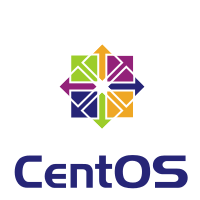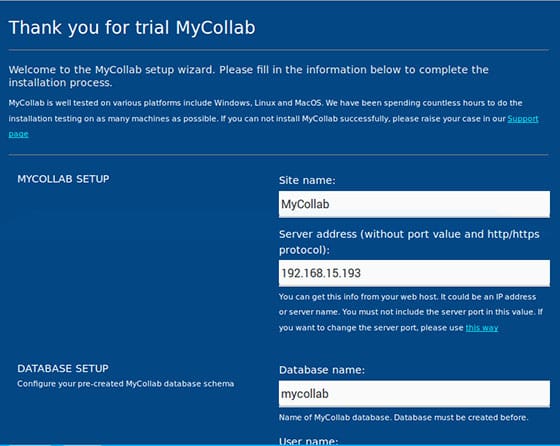
In this tutorial, we will show you how to install MyCollab Project Management Software on your CentOS 7 server. For those of you who didn’t know, MyCollab is a free and open-source collaboration tool, it has three existing modules: Project Management, CRM, and Document Management. Intuitive UI, rich features, high performance, and stability are the advantages compared with various popular tools in the market such as Redmine, Bugzilla, Mantis, etc. This open-source is included in a trusted commercial product that is deployed on hundreds of companies’ servers.
This article assumes you have at least basic knowledge of Linux, know how to use the shell, and most importantly, you host your site on your own VPS. The installation is quite simple and assumes you are running in the root account, if not you may need to add ‘sudo‘ to the commands to get root privileges. I will show you the step-by-step installation MyCollab Project Management Software on a CentOS 7 server.
Prerequisites
- A server running one of the following operating systems: CentOS 7.
- It’s recommended that you use a fresh OS install to prevent any potential issues.
- SSH access to the server (or just open Terminal if you’re on a desktop).
- A
non-root sudo useror access to theroot user. We recommend acting as anon-root sudo user, however, as you can harm your system if you’re not careful when acting as the root.
Install MyCollab Project Management Software on CentOS 7
Step 1. First, let’s start by ensuring your system is up-to-date.
yum clean all yum -y update
Step 2. Install the LAMP server.
A CentOS 7 LAMP stack server is required. If you do not have LAMP installed, you can follow our guide here.
Step 3. Installing Java.
You will also need the Java Runtime Environment (JRE) version 8 or higher. You can install it by running the following command:
yum install java-1.8.0-openjdk
Step 3. Installing MyCollab Project Management Software.
The first thing to do is to go to MyCollab Project Management Software’s download page and download the latest stable version of MyCollab:
wget https://github.com/MyCollab/mycollab/releases/download/Release_7.0.3/MyCollab-All-7.0.3.zip
After downloading Concrete5 you will need to unzip master.zip. To do this, run:
unzip MyCollab-All-7.0.3.zip
You can install MyCollab by running the provided startup.sh installation script:
cd MyCollab-7.0.3/bin sudo ./startup.sh
Step 4. Configuring MariaDB for MyCollab Project Management.
By default, MariaDB is not hardened. You can secure MariaDB using the mysql_secure_installation script. you should read and below each step carefully which will set a root password, remove anonymous users, disallow remote root login, and remove the test database and access to secure MariaDB:
mysql_secure_installation
Configure it like this:
- Set root password? [Y/n] y - Remove anonymous users? [Y/n] y - Disallow root login remotely? [Y/n] y - Remove test database and access to it? [Y/n] y - Reload privilege tables now? [Y/n] y
Next, we will need to log in to the MariaDB console and create a database for MyCollab Project Management. Run the following command:
mysql -u root -p
This will prompt you for a password, so enter your MariaDB root password and hit Enter. Once you are logged in to your database server you need to create a database for the MyCollab Project Management installation:
MariaDB [(none)]>CREATE USER 'mcuser'@'localhost' IDENTIFIED BY 'password'; MariaDB [(none)]>GRANT ALL PRIVILEGES ON mycollab.* TO 'mcuser'@'localhost' IDENTIFIED BY 'password' WITH GRANT OPTION; MariaDB [(none)]>FLUSH PRIVILEGES; MariaDB [(none)]>exit;
Step 5. Configure Firewall for MyCollab.
Next step, we should allow HTTP traffic on port 8080 through the firewall. You can do this by running the following command:
firewall-cmd --zone=public --permanent --add-port=8080/tcp firewall-cmd --reload
Step 6. Accessing MyCollab Web Interface.
MyCollab will be available on HTTP port 80 by default. Open your favorite browser and navigate to http://your-domain.com:8080 or http://server-ip:8080 and complete the required steps to finish the installation.

Congratulations! You have successfully installed MyCollab. Thanks for using this tutorial for installing MyCollab Project Management Software on CentOS 7 system. For additional help or useful information, we recommend you to check the official MyCollab website.